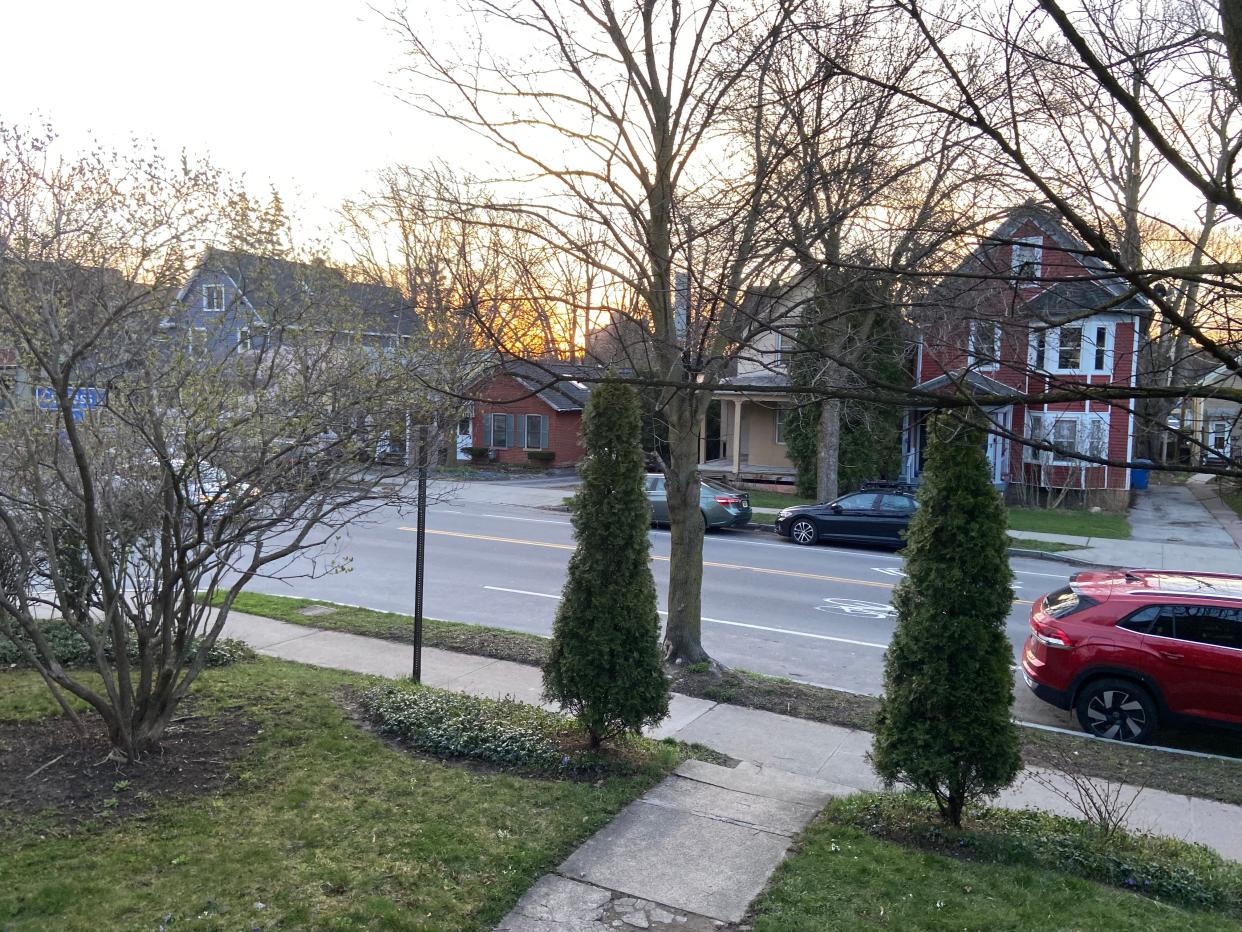What is the real estate 'lock-in effect' in Rochester? It might cost you a lot of money.
If housing is low on inventory, more professionals in Rochester can work from home and interest rates have risen since you got your existing mortgage — why would you move?
Many people in western New York are frozen in place in a decent real estate situation as owners, with few incentives to change the view.
While more housing units are needed, and work is being done by the government and developers on new construction, Mike O'Connor, 2024 president of the Greater Rochester Association of Realtors, said those well established in their home aren't looking to move.
"They have mortgages at 3.4 percent or less, and some have no mortgages, even if they would normally consider moving, they are now deciding to stay put," said O'Connor, who is also an associate broker with Empire Realty. "We are not seeing the turnover and that's the crux of the issue."
Those would-be sellers aren't quick to move and use up all their equity to buy a more expensive home in this market. And then there's the question of where they would go?
"There is no inventory," O'Connor said. "I typically call it gridlock ... We definitely have people on the sideline and the only way to move things along and release that gridlock is for them to jump in, but we're still a long way from there."

Making homeownership more accessible
He said there are programs that can help buyers, including grants, mortgage assistance and others, but people have to be aware of them to take advantage. Many people, especially those who don't have a strong history of homeownship in their families, are being left behind.
"They don't even reach out and think they are destined to rent forever because of low income or a low credit score. They don't seek guidance," O'Connor said. "Not everyone has the benefit of generational wealth."
There are strategies and programs that can help, escpecially in the city, O'Connor said. Sometimes it is just a matter of time, not necessarily greater income.
"Most people we would put them on a track and help them learn the process and what they need," he said. "In particular in the city, they don't make that inquiry. They think, 'it's not for me.' Our challenge is how do we tap into there people to help. It can be difficult to connect with them."
Re-Imagine Roc Housing
Last year, the Realtors Association, builders, housing advocates and government officials began meeting to discuss the ongoing housing crunch in hopes of coming up with sustainable, real solutions.
O'Connor said the group's work is in the preliminary stages as it researches the issue to find ways to serve the current and future housing needs of the region. The Re-Imagine Roc Housing initiative, for example, could consider zoning for higher density and how to convert underutilized or vacant commercial properties into housing.
"It looks to solve the housing market problem on all levels," O'Connor said. "It's a mainstream topic. This is not something that is just going to work itself out."
O'Connor said the housing crisis needs to be solved for the economic health of Rochester and the region. Without housing, companies will not come here and graduates will leave, he said.
"We have a need for housing at every level — the elderly, the affordable, the assisted living, the Gen-xers, the younger people — they are all in the market at the same time," O'Connor said. "It's the first time we've really seen that, too."
— Danielle Camilli is an editor with USA TODAY Network.
This article originally appeared on Rochester Democrat and Chronicle: What is real estate 'lock-in effect' in Rochester NY? It may cost you
